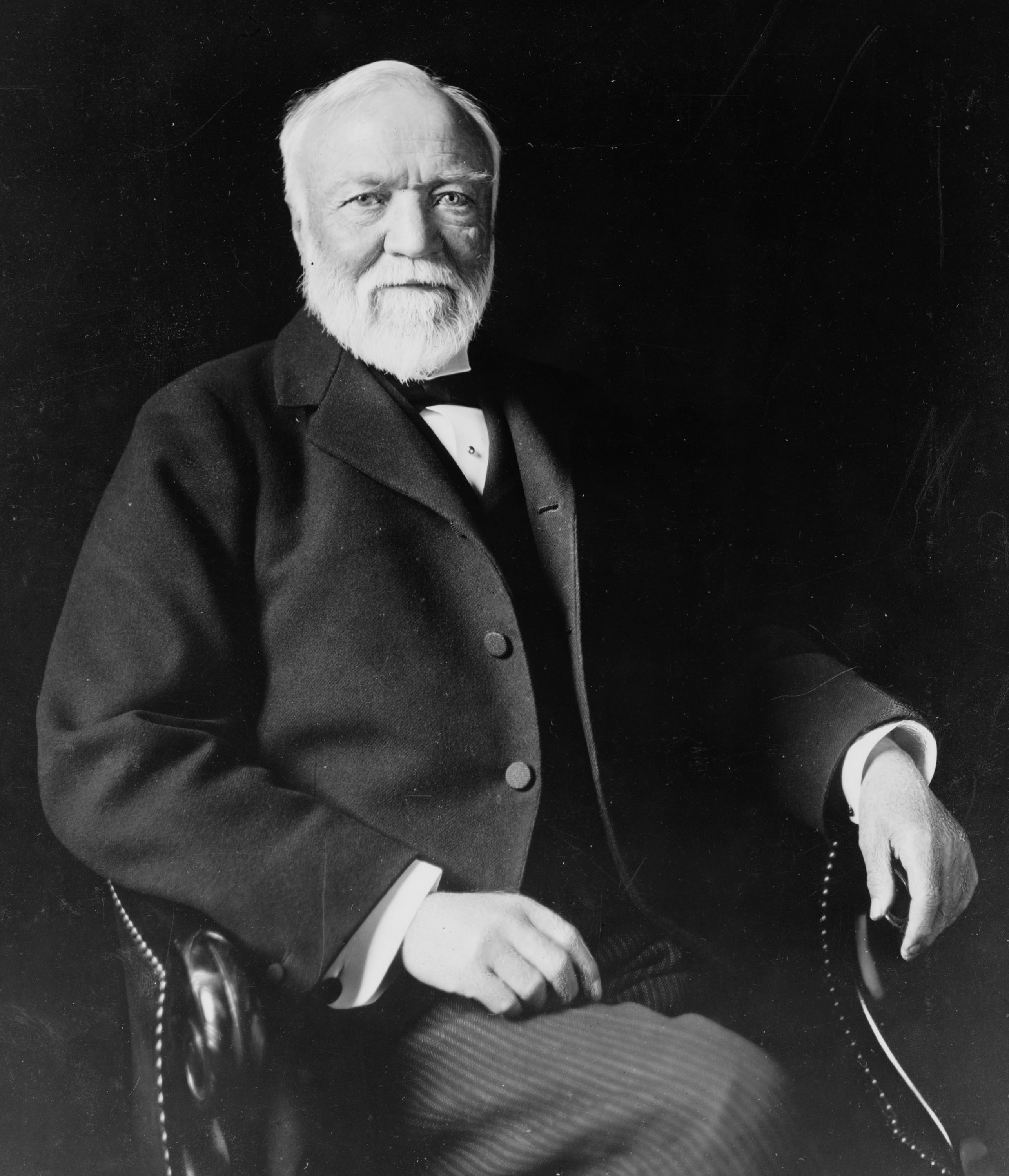(image source: Wikimedia Commons)
The 11th of August 2019 will mark the hundredth anniversary of the death of Andrew Carnegie. While best known in the popular imagination for his ‘rags to riches’ story, rising from an early life of penury in Dunfermline to become America’s leading steel tycoon, Carnegie was also a committed and influential internationalist. By the age of forty, Carnegie spent the majority of his time not on his considerable business ventures, but on becoming a scholar and public intellectual. He dreamed of the reunion of Britain and America, became a fervent acolyte of Herbert Spencer, publicly chastised the United States’ turn to imperialism following the Spanish-American War, and called for a world order founded on international law. Carnegie also devoted his largesse to these causes. Most notably as the patron of the Peace Palace in The Hague, which today houses the International Court of Justice, and the Carnegie Endowment for International Peace, still widely considered to be one of the most influential think-tanks in the world.
2019 will also witness the hundredth anniversary of several epochal events in the history of internationalism – the Versailles Treaty, the signing of the covenant of the League of Nations, and the foundation of the Communist International. These anniversaries present an opportune moment to return to Andrew Carnegie’s thought and philanthropy, and to examine his contribution to the history, development and contemporary practice of internationalism. The retrenchment of internationalism in recent years endows these topics with a new and urgent significance, while also raising a number of interesting parallels with the fate of the internationalism of Carnegie’s own day – mired as it was by war, protectionism, crumbling empires, economic depression, and the stillborn birth of the League of Nations. It was this period of crisis that gave way both to the Second World War, and to a recrudescent internationalism that paved the way for the United Nations and the post-war international order. Its legacies are manifold for today.
Drawing on these anniversaries, the University of Edinburgh – an apposite location since Carnegie’s birthplace, Dunfermline, lies just across the River Forth – is hosting a conference focusing on some of the themes of Carnegie’s life and the year 1919. The conference will consist of a number of panels, grouped around five keynote addresses by the invited speakers.
Invited Speakers
- Dr Duncan Bell, University of Cambridge
- Professor Erez Manela, Harvard University
- Professor Patricia Owens, University of Sussex
- Professor Inderjeet Parmar, University of London
- Professor Ingrid Sharp, Leeds University
- Dr Duncan Bell, University of Cambridge
- Professor Erez Manela, Harvard University
- Professor Patricia Owens, University of Sussex
- Professor Inderjeet Parmar, University of London
- Professor Ingrid Sharp, Leeds University
Paper Submissions
We welcome paper proposals from historians, international relations scholars and political theorists on the following subjects (this list is meant to be indicative rather than exhaustive):
- Carnegie’s views on international cooperation, philanthropy and world politics
- Significance of 1919 as a turning point in the history of internationalism
- History of international cooperation, organisations and law
- Proposals for an Anglo-American union
- Role of philanthropic organisations, endowments and think tanks in world politics
- Visions of world order and the decline of empires
- Origins and history of American anti-imperialism
- Changing tides of globalisation
- Significance of 1919 as a turning point in the history of internationalism
- History of international cooperation, organisations and law
- Proposals for an Anglo-American union
- Role of philanthropic organisations, endowments and think tanks in world politics
- Visions of world order and the decline of empires
- Origins and history of American anti-imperialism
- Changing tides of globalisation
Please submit a 500-word proposal and a short CV to Louis Fletcher (louis.fletcher@ed.ac.uk) by 14 January 2019. You will be notified about the status of your submission by the end of January 2019.
Conference Organisers
Louis Fletcher
Dr Fabian Hilfrich
Prof Juliet Kaarbo
Dr Mathias Thaler
Dr Fabian Hilfrich
Prof Juliet Kaarbo
Dr Mathias Thaler
Support
The conference is sponsored by the School of History, Classics and Archaeology, the School of Social and Political Science, and the Centre for Security Research (CeSeR) at the University of Edinburgh.
(source: HSozKult)

